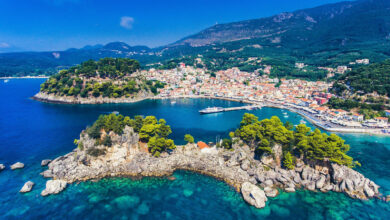Israel is a small country located in the Middle East, on the eastern shore of the Mediterranean Sea. Despite its small size, Israel is a country of great diversity, with a rich cultural heritage, a dynamic economy, and a unique blend of modern and ancient history.
One of the most significant cultural and historical attractions in Israel is Jerusalem, the capital city and a holy site for three major religions: Judaism, Christianity, and Islam. The city is home to many historic sites, such as the Western Wall, the Temple Mount, and the Church of the Holy Sepulchre, as well as modern cultural institutions, such as museums, theatres, and art galleries.
Another important cultural and historical site in Israel is the Dead Sea, the lowest point on Earth, with a shoreline that is over 400 meters (1,300 feet) below sea level. The Dead Sea is known for its therapeutic properties, with high concentrations of minerals and salt that are said to have health benefits for the skin and the body.
Israel is also a country of great natural beauty, with a diverse landscape that ranges from the deserts of the Negev and the Arava to the mountains of Galilee and the Golan Heights, to the lush coastline of the Mediterranean Sea. The country is also home to many national parks and nature reserves, which offer visitors the opportunity to explore its unique flora and fauna, as well as its geological wonders.
In addition to its cultural and natural attractions, Israel is a highly developed country with a dynamic economy and a thriving business community. The country is a leader in many cutting-edge industries, including high-tech, biotechnology, and renewable energy, and is home to many innovative startups and multinational corporations.
In conclusion, Israel is a small country with a rich cultural heritage, a dynamic economy, and a unique blend of modern and ancient history. Whether you are interested in exploring its cultural and historical sites, experiencing its natural beauty, or participating in its thriving business community, Israel is a destination that is sure to leave a lasting impression on all who visit.
Best Time to Visit Israel
The best time to visit Israel depends on personal preference and what you hope to experience during your visit. Israel has a Mediterranean climate, with warm, dry summers and mild, wet winters.
If you’re interested in exploring the country’s many cultural and historical attractions, the spring (March to May) and fall (September to November) are the best times to visit, with mild weather and fewer crowds. During these seasons, temperatures are generally in the mid to high 20s Celsius (70s to 80s Fahrenheit).
If you’re interested in visiting the beaches along the Mediterranean coast, the summer months of June to August are the best time to go, with warm and sunny weather. During this time, temperatures can reach up to the mid-30s Celsius (90s Fahrenheit), so it’s important to be prepared for hot weather.
If you’re interested in outdoor activities such as hiking and exploring the natural beauty of the country, the winter months of December to February are also a good time to visit, with mild temperatures and occasional rain showers. During this time, temperatures are usually in the mid to high 10s Celsius (50s to 60s Fahrenheit).
In general, the best time to visit Israel is between March and November, when temperatures are mild and there are fewer crowds, allowing for a more comfortable and enjoyable experience. Regardless of when you visit, it’s important to be prepared for unpredictable weather and to pack accordingly.
Average Temperature in Israel
The average temperature in Israel varies depending on the region and the time of year.
In general, Israel has a Mediterranean climate, characterized by warm, dry summers and mild, wet winters. Coastal areas, such as Tel Aviv and Haifa, have moderate temperatures throughout the year, with average temperatures ranging from the high 10s Celsius (50s to 60s Fahrenheit) in the winter to the high 20s Celsius (70s to 80s Fahrenheit) in the summer.
Inland areas, such as Jerusalem and Galilee, have a more varied climate, with cooler temperatures in the winter and hot, dry conditions in the summer. Average temperatures in these areas range from the mid to high 10s Celsius (50s to 60s Fahrenheit) in the winter to the mid-30s Celsius (90s Fahrenheit) in the summer.
The desert regions of the Negev and the Arava have extreme temperatures, with very hot summers and very cold winters. Average temperatures in these areas range from the high 20s Celsius (70s to 80s Fahrenheit) in the summer to below-freezing in the winter.
In general, the coastal areas of Israel have a more moderate climate, while the inland and desert regions have more extreme temperatures. Regardless of where you are in Israel, it’s important to be prepared for unpredictable weather and to pack accordingly.
Credits
Photo: Masada, Israel. Photo by: Cristina Gottardi on Unsplash



